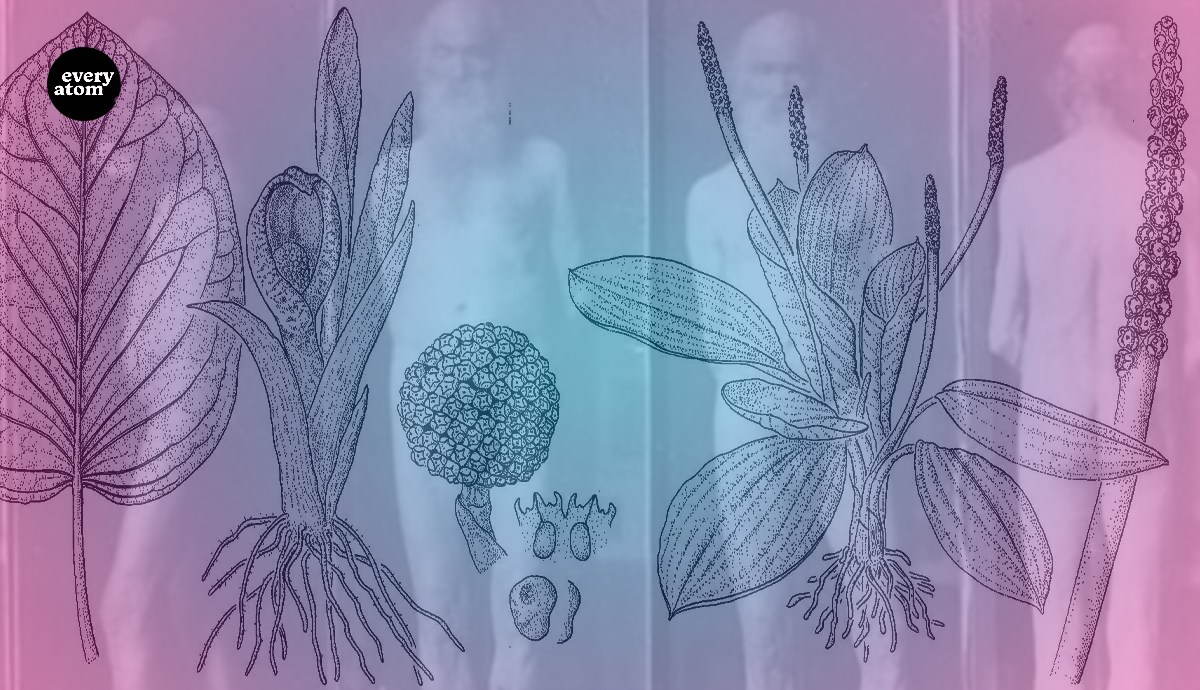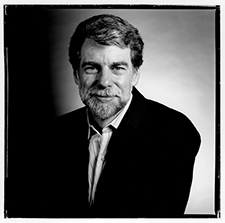Every Atom | No. 190
Introduction to Every Atom by project curator Brian Clements

I believe in you my soul . . . . the other I am must not abase itself to you,
And you must not be abased to the other.
Loafe with me on the grass . . . . loose the stop from your throat,
Not words, not music or rhyme I want . . . . not custom or lecture, not even the best,
Only the lull I like, the hum of your valved voice.
I mind how we lay in June, such a transparent summer morning;
You settled your head athwart my hips and gently turned over upon me,
And parted the shirt from my bosom-bone, and plunged your tongue to my barestript heart,
And reached till you felt my beard, and reached till you held my feet.
And I know that the hand of God is the elderhand of my own,
And I know that the spirit of God is the eldest brother of my own,
And that all the men ever born are also my brothers . . . . and the women my sisters and lovers,
And that a kelson of the creation is love;
And limitless are leaves stiff or drooping in the fields,
And brown ants in the little wells beneath them,
And mossy scabs of the worm fence, and heaped stones, and elder and mullein and pokeweed.
The climax—in every sense—of “Song of Myself” comes early in the poem, in section 5. As in so much of Whitman’s greatest poetry, it’s not entirely clear what’s going on, although many readers believe the section describes a mystical religious experience. Outdoors, on a beautiful summer morning, the poet experiences an intense union with his soul, which leads to a revelation. This new knowledge cannot be expressed in rational terms—it passes all argument—but the poet experiences an intense connection with God and his fellow human beings, and he understands that love is the guiding force of the universe. (A kelson is part of the keel of a ship, responsible for keeping it on course.)
If you understand “Song of Myself” as an essentially religious poem, then you can see why this mystical climax comes so early: the rest of the poem is an expression of the insight that the poet gains at this moment. The doors of perception have been cleansed, and he now sees into the infinite heart of God, humanity, and the natural world.
Some of Whitman’s contemporary readers were certain that they knew exactly what lay behind these lines. Richard Maurice Bucke, the Canadian psychiatrist who wrote the first Whitman biography, said that they were about Whitman’s attainment to “Cosmic Consciousness,” an experience that Bucke dated to June, 1853. Whitman himself, despite Bucke’s persistent inquiries, refused to say.
Many later readers have focused on the section’s third stanza, which appears to describe a sexual encounter, most likely between two men. Others argue that the eroticized tongue is also an organ of speech and that the stanza describes the origin of Whitman’s poetic vocation.
When I teach “Song of Myself,” students ask me, “Is this section spiritual or sexual? Does it show infantile regression or mystical illumination? Is the sex metaphorical or real? Is it homosexual or heterosexual?” I have a ready answer for their questions: Yes.
Recommended
Nor’easter
Post-Op Appointment With My Father
Cedar Valley Youth Poet Laureate | Fall 2024 Workshop






